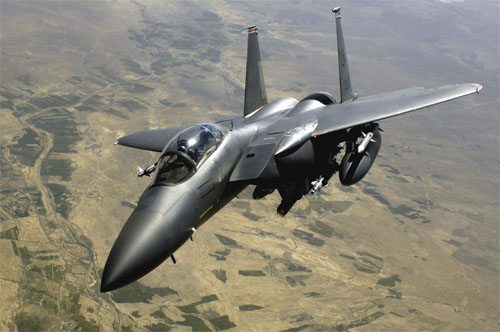United Press International,
BEIJING: Vladimir Putin's trip to Beijing Tuesday for the opening ceremony of the “Year of Russia in China” is a key evolution in the geopolitical economy America faces.
Following the collapse of the Soviet Union 15 years ago, neither Russia nor China by itself could effectively compete with the United States. Besides its military and economic might, the soft power projection of U.S. culture, and a widespread perception abroad as a force for good, made America a Teflon-coated colossus.
The alliance began when presidents Jiang Zemin and Boris Yeltsin, leaders of unsavory regimes trying to keep respective lids on domestic discontent, ran scared into each others' arms and forged a “strategic partnership of cooperation” in 1996 as a form of mutual support.
The momentum of ex-empires looking for ways to maintain control over restive territories hearkens back to China's Qing and Russia's Romanov dynasties when the two first met in the 17th century.
A plethora of officials from both sides have averred that the alliance is “not directed against any third country,” since its inception. However one would have to live in denial to not see the tangible benefits that accrue to China and Russia acting in concert as a strategic counterweight to the U.S.
At the same time one of the primary objectives stated in the Sino-Russian alliance is to promote the creation of a multi-polar world, meaning America shares the limelight rather than act as the unilateralist starring role.
Policymakers in Washington grapple with trying to figure out how to deal with China's rise and Russia's role helping both its neighbor and ultimately itself to regain respect competing with the U.S.
Putin's stay in Beijing contains several tripwires to watch as the “strategic partnership of cooperation” enters its second decade. Most analysts will be surprised if a true sea change agreement to the status quo is publicly achieved any the following areas.
Number one on everyone's radar screen is energy. The question here is mutual commitment to pipeline construction that culminates in a deal. Last week Russia's ambassador to China promised his country would ship 15 million tons of crude oil in 2006, slightly more than a tenth of the PRC's needs by imports in 2005.
Transneft and China National Petroleum Corporation have talks underway, but finalization depends on several factors: the point where the pipeline crosses the Chinese border; estimated construction time; the volume of crude at capacity once completed; and most importantly, financing.
Russia has kept China dangling on tenterhooks for years over sealing this strategic deal. If Putin and his people call for more “research” citing environmental or scope of the scheme reasons, it means China still needs to sweeten the pot.
To Read Full Article, Click Here









